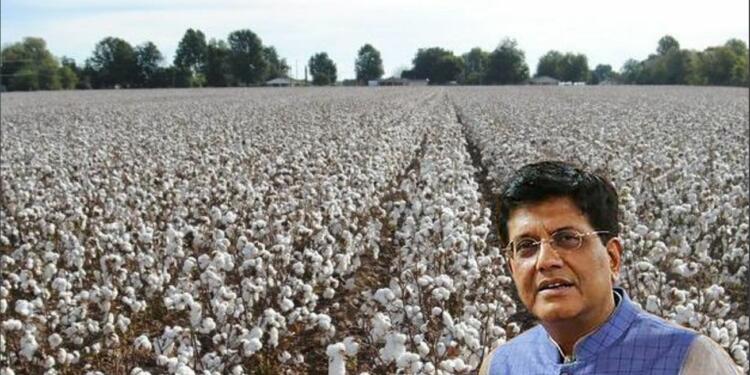Textile is among the sectors for which Indian products have been known internationally for decades. Indian exports used to rule over the western textile markets for centuries but in the late 19th and 20th centuries, the prowess diminished with the rise of synthetic fibres.
Now, the Modi government has given the charge of textile to Piyush Goyal to revive the Indian prowess in the sector, and the minister has set a very ambitious target of 100 billion dollars in exports. “I am sure nothing less than $100 billion will satisfy any of you and certainly will not satisfy the government led by Prime Minister Narendra Modi. He is a person with very high expectations from the textile industry,” said the textile minister at an event a few days ago.
At present, the textile export of the country is at 33 billion dollars and the target for FY 22 is 44 billion dollars. The Union government under the leadership of Piyush Goyal aims to set up textile parks in various states of the country for exports if the states commit land, labour, and infrastructure.
“We need competition among states to capture business opportunities and we will see that competition in the Mitra scheme. We have to finalize 6-7 textile parks. States will have to commit for land, labour laws, infrastructure and power at attractive rates.” “I have started a dialogue with states. Some have shown willingness to come forward,” said Piyush Goyal.
The government would soon approve the Production Linked Incentive with a financial outlay of Rs 10,683 crore over five years to boost domestic production and exports in the textile sector.
India is the largest producer of cotton in the world, but manufacturing has become uncompetitive in the country due to regulatory cholesterol and bureaucratic inefficiencies. In fact, some industrial houses in India like Aditya Birla Group (ABG) manufacture products in Bangladesh because it has become uncompetitive.
PLI scheme would improve the manufacturing efficiency of Indian companies and make Indian manufacturing competitive in comparison to Bangladesh or Southeast Asia.
PLI would be a major boost especially for the Man-made Fibre (MMF), which is a large global market and India is relatively uncompetitive despite internal strengths. “India is doing 80 per cent cotton and 20 per cent MMF, while the world is doing is other way round. We need to promote these sectors and PLI is a welcoming step in that direction,” said Apparel Export Promotion Council (AEPC) Chairman A Sakthivel.
Piyush Goyal is the man to take the textile sector forward. After the appointment of Goyal in the textile industry, the shares of textiles companies were in demand as Vardhman Textiles, Siyaram Silk Mills, RSWM, and Dollar Industries hit their respective 52-week highs on the BSE in intra-day trade; this shows the trust that the industry has over Goyal.
In the Union Budget 2021-22, FM Sitharaman granted Rs 3,614.64 crore, about 10 per cent higher than the revised Budget amount of Rs 3,300 crore in 2020-21 to the sector. The Budget also emphasized infrastructure development and research and capacity building in the sector as the grant for these segments had been increased by about 43.7 per cent and 77.5 per cent, respectively, compared to last year.
With the introduction of Goyal in the Textile Ministry and better monetary support from the Finance Ministry, one can be assured that the industry will only touch new heights. The minister surely has a knack for taking difficult challenges and overcoming them.
























